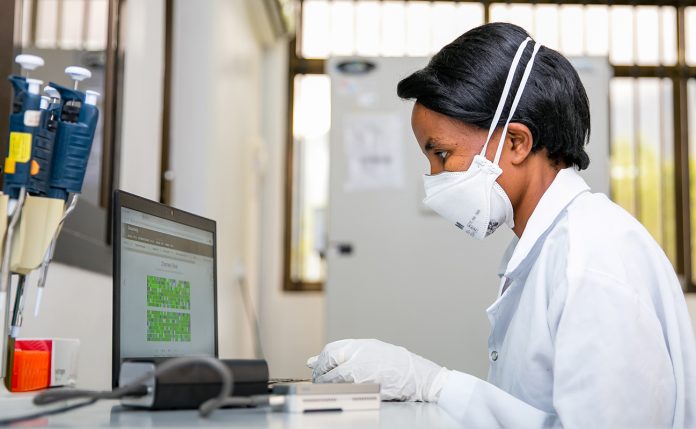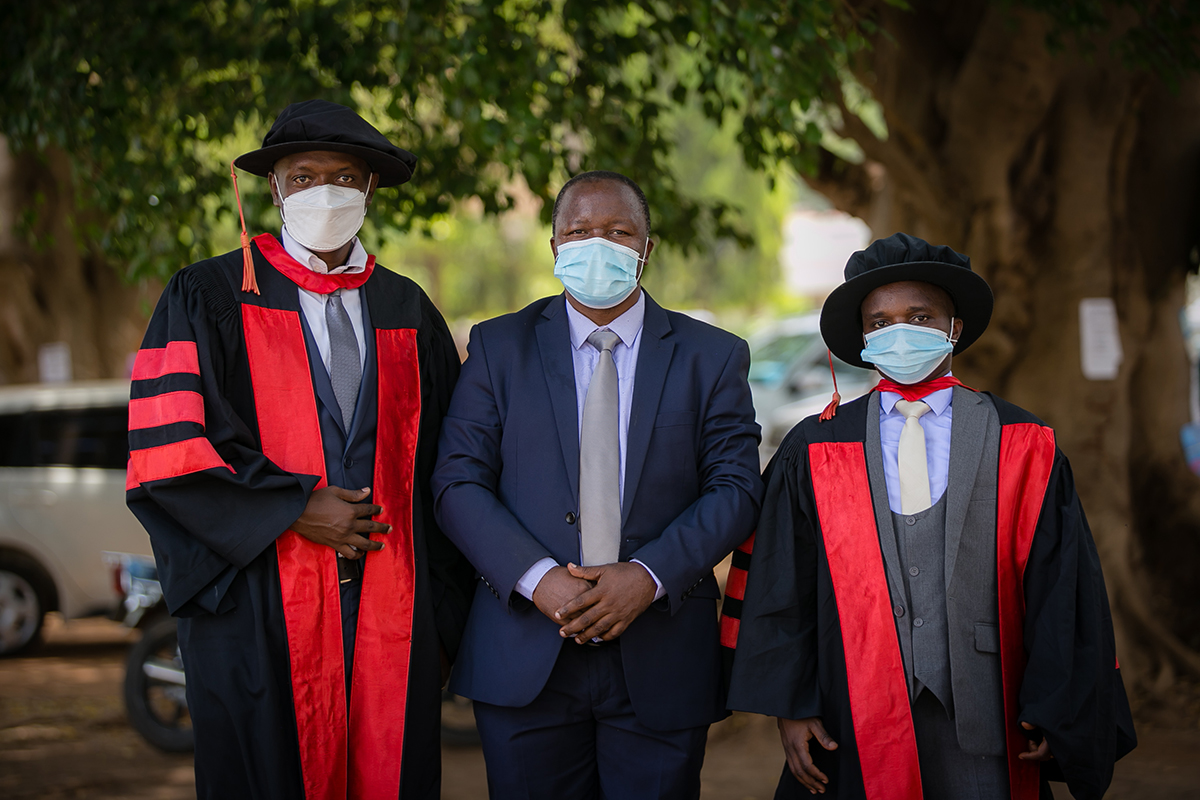
Gerald Misinzo and Mark Rweyemamu tells us about the decade of work done by the SACIDS Foundation for One Health to protect Sub-Saharan Africa from deadly infectious diseases, including COVID-19
Faced with the conundrum of a high burden of infectious disease yet a low capacity for its risk management, representatives of academic and research institutions in 5 Member States of the Southern African Development Community (SADC) – Democratic Republic of the Congo, Mozambique, South Africa, Tanzania and Zambia, resolved to form, in January 2008, the Southern African Centre for Infectious Disease Surveillance (SACIDS) to address infectious diseases in the endemic settings of Africa. The Founding institutions peer-elected Sokoine University of Agriculture in Tanzania to host the Secretariat and Headquarters of SACIDS.
In 2018, SACIDS was transformed into the SACIDS Foundation for One Health, with a wider and stronger capability to address the strategic goals over the next 10 years. SACIDS’s mission is to undertake cutting edge, transdisciplinary and multi-sectoral research that is impact orientated, prioritised and system based. This will be undertaken in Southern, Central and Eastern Africa, and where appropriate delivered through strategic partnerships with academia, research institutes, and international organisations.
SACIDS envisions a Sub-Saharan African society protected from devastating infectious diseases affecting the health of humans, animals, i.e. both terrestrial and aquatic, and ecosystems, thereby promoting livelihoods, socio-economic development including market access and the environment. Our focus on infectious diseases includes special attention to the study of anti-microbial resistance.
Africa Centres of Excellence (ACE)
After eight years of progressive success, the SACIDS Member institutions in Zambia and Tanzania were successful in forming two World Bank designated Africa Centres of Excellence (ACE) for Infectious Diseases of Humans and Animals in Eastern and Southern Africa, respectively at the University of Zambia and Sokoine University of Agriculture (partnering with Muhimbili University of Health and Allied Sciences and the Tanzania National Institute for Medical Research). The two ACEs are funded respectively by the Governments of Zambia and Tanzania, through the IDA facility of the World Bank.
OR Tambo Africa Research Chair
In 2020, the OR Tambo Africa Research Chairs Initiative (ORTARChI) announced Professor Gerald Misinzo and Sokoine University of Agriculture (SUA) as one of the initiative’s first ten individual research chair holders and host institutions. The Chairs are named after OR Tambo, who was a South African anti-apartheid politician and revolutionary who served as President of the African National Congress (ANC) from 1967 to 1991. The Chair is integrated into the SACIDS Foundation for One Health and focuses on viral epidemics with the aim of developing innovative approaches through science and technology-driven by genomics, molecular biology and analytical epidemiology in order to improve the risk management of infectious diseases in the ecosystems of Africa.
Regional Scholarship and Innovation Fund (RSIF)
Realising that Africa’s socio-economic transformation is hindered by a critical shortage of scientific, engineering and technological expertise, in 2017, the Executive Board of the Partnership for skills in Applied Sciences, Engineering and Technology (PASET) selected SACIDS to host its Regional Scholarship and Innovation Fund (RSIF) in food security and agribusiness. RSIF is a pan-African Science Fund, seeded by African governments, to raise the quality of PhD training and applied demand-driven research in competitively selected Sub-Saharan Africa universities through a partnership with international universities. The RSIF aims to help create a critical mass of highly skilled scientists, professionals and innovators in the Applied Sciences, Engineering and Technology (ASET) fields by training at least 10,000 new PhD holders in sub-Saharan Africa within 10 years.
The RSIF-PASET programme is enabling SACIDS at SUA to embrace the expanding role of One Health in securing human, animal, plant and ecosystems/environmental health. SACIDS has so far attracted 30 out of the 184 RSIF-PASET PhD students recruited in three cohorts into 15 African Host Universities who are nationals of Kenya, Rwanda, Tanzania, Benin, Burkina Faso, Chad, DRC, Malawi, Niger, Ethiopia, South Sudan and Ivory Coast. In November 2021, SUA was the first African Host University in the RSIF-PASET programme to graduate PhD students; including Jean Hakizimana and Noel Gahamanyi, both from the Republic of Rwanda.

Infectious Epidemic Diseases
In Africa, progressive capacity development of expertise for infectious epidemic diseases as witnessed by SACIDS resulted in being alerted to the risk of the global spread of COVID-19 even to Africa as early as January/February 2020. As soon as initial cases were recorded on the continent in February 2020, SACIDS sought financial support to enable member institutions to provide expertise to national preparedness and early response. And as a result, SACIDS together with the Africa CDC, and the East African Integrated Disease Surveillance Network (EAIDSNet), were funded by the Skoll Foundation for the ‘Strengthening SACIDS and regional COVID-19 emergency preparedness in eastern and southern Africa’.
This enabled SACIDS institutions in the diagnosis and subtyping, enhanced surveillance and risk communication in the Democratic Republic of Congo (DRC), Mozambique, Tanzania and Zambia. Unlike in previous major epidemics, SACIDS academic and research expertise was available, in situ, in all 4 countries to support national authorities with their appropriate early response right from the point of index cases.
About SACIDS Foundation for One Health
The SACIDS Foundation for One Health (SACIDS) is a ONE HEALTH Virtual Institute that links academic and research institutions in Southern and Eastern Africa, which deal with infectious diseases of humans and animals within the African Ecosystem, in an innovative South-South-North smart partnership with world-renowned centres of research and training. For details visit www.sacids.org
Please note: This is a commercial profile
© 2019. This work is licensed under CC-BY-NC-ND.







